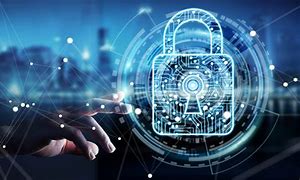
Today, everything is connected. Because of this digital shift, companies need to use technology to stay competitive. They want to work faster and meet the needs of tech-savvy customers. But as they do this, protecting their systems from cyber threats is super important.
Digital transformation isn’t just about using new tech. It changes how businesses run. From cloud storage to the Internet of Things, companies are gaining a lot from digital tools. But these tools can also attract cybercriminals who want to steal information. Keeping data safe is just as important as collecting it.
The Digital Transformation Wave
Digital transformation makes life easier and faster. Employees can work from anywhere, and customers can shop online without any hassle. Using cloud services and working remotely is now the norm. The COVID-19 pandemic sped this up even more.
But all this connectivity has a downside. More connections mean more chances for hackers to strike. A report says that by 2025, global cybercrime costs could hit $10.5 trillion. That’s a huge problem.
Why Cybersecurity Matters
Many businesses focus on innovation but forget about security. That can be a big mistake. As companies go digital, they gather lots of sensitive data. This includes personal details, financial info, and trade secrets. Cybercriminals see this as an easy target.
Take ransomware, for example. Hackers can lock up important files and demand money to unlock them. Recently, this has hurt hospitals and local governments. The damage isn’t just about paying ransoms. Businesses can lose money, face legal issues, and see their reputation take a hit.
Data breaches and phishing scams are also on the rise. A recent report shows that 74% of breaches happen because of people making mistakes. This tells us that security isn’t just about tech. It’s really about training people and building a safety-first culture.
Cybersecurity Challenges Today
In today’s digital world, cybersecurity faces many issues. The biggest is that cyber threats always change. Hackers use tools like AI and deepfakes to get past defenses. As companies use new tech, hackers find ways to exploit it.
Another challenge is how complicated IT setups have become. Businesses now use many connected systems and third-party services. A weak spot in any part can harm the whole company. Often, hackers target smaller vendors to sneak into larger ones.
The lack of skilled cybersecurity workers makes it worse. There aren’t enough experts to keep up with the demand. Many companies struggle to find qualified people who can tackle new threats.
Cybersecurity’s Role in Digital Change
Instead of seeing cybersecurity as a barrier, companies should view it as a booster. Good security builds trust, sparks innovation, and drives growth. Customers like businesses that take data protection seriously, and partners prefer working with secure companies.
So, how can companies mix cybersecurity into their digital plans?
1. Be Proactive: Companies should not wait for a problem to happen. They need to watch their systems all the time and fix problems before they’re exploited. AI tools can help spot unusual activities quickly.
2. Use Zero-Trust Security: This approach means not trusting anyone until they can prove they belong. Every person and device trying to access a network should be checked. This helps prevent internal breaches.
3. Train Employees: People can make mistakes, and that hurts security. Training staff to spot phishing emails and use strong passwords can lower risks. Awareness programs are just as important as any tech investment.
4. Use Cloud Security Tools: As many businesses move to the cloud, they need tools to keep their data safe. Features like encryption and two-step verification add extra protection.
5. Regular Security Checks: Businesses should routinely check their security systems. This helps them spot new threats and fix any weaknesses.
The Future of Cybersecurity
Looking forward, cybersecurity will be even more tied to digital change. New tech like 5G and AI will change the way we live and work. While these advances bring many benefits, they also come with new risks. For example, 5G can speed things up but also makes systems more vulnerable.
Companies will have to think about security every time they try something new. Governments also need to step up with stricter laws and better collaboration to fight cybercrime.
Conclusion
In our digital world, good cybersecurity isn’t optional; it’s a must. As businesses use new tech, they have to make sure they protect their data and customers. One security breach can break years of trust and slow down progress.
Cybersecurity shouldn’t hold back digital change. Instead, it should support it safely. By creating a culture of awareness and being ready for new threats, companies can succeed in this fast-paced digital world. After all, the future will belong to those who innovate securely.





